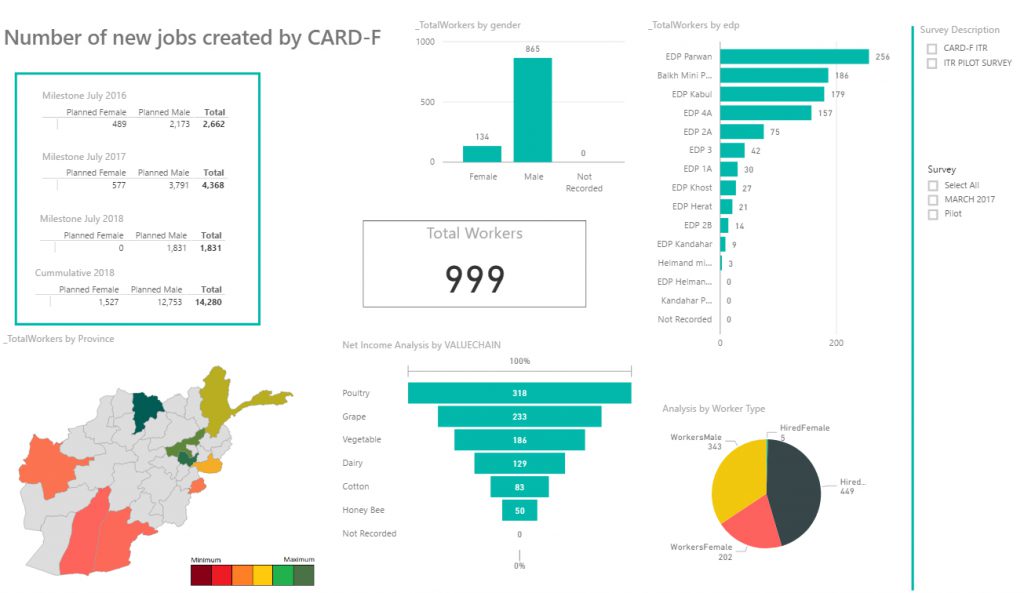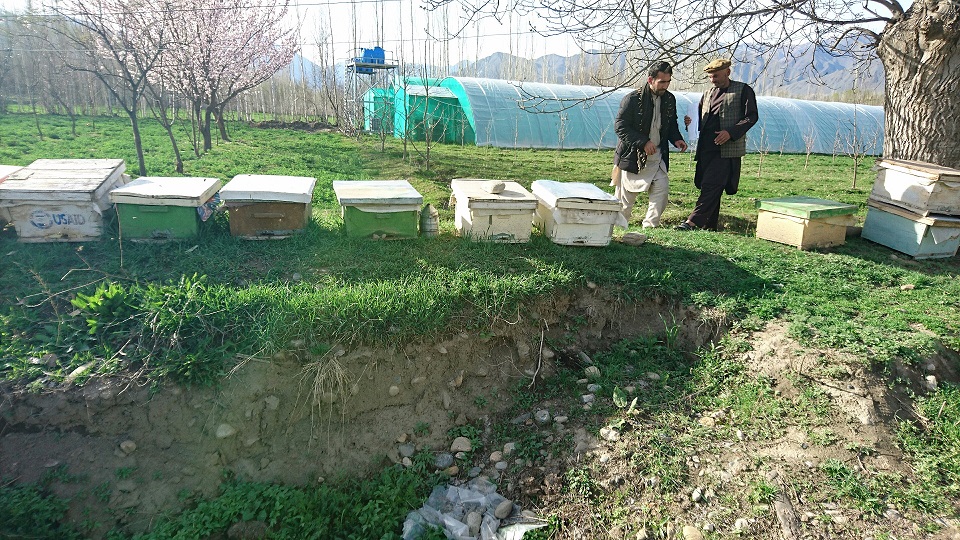CARD-F Project, Afghanistan
Monitoring the effectiveness of UK Assistance to the Afghan Agriculture Sector
In 2016, Tetra Tech was appointed as the Independent Technical Reviewer by the UK Department for International Development (DFID) for the Comprehensive Agricultural and Rural Development Facility (“CARD-F”) in Afghanistan.
CARD-F delivered integrated Economic Development Packages (EDPs) at district levels in a number of Afghan provinces, which provided a mix of infrastructure, technical assistance and grants to farmers and entrepreneurs to help increase their agricultural production, develop value chains, and improve market access. With security worsening in the country, DFID needed ‘eyes on the ground’ to assess whether UK aid is delivering results.
In Afghanistan, it is not possible for most international researchers to obtain permission to conduct fieldwork and manage quality in non-permissive areas and local research teams have to track down a beneficiary population that is highly mobile – moving from location to location in order to survive a harsh economic environment aggravated by conflict. As a result, Tetra Tech experts needed to depend on Afghan enumerator teams for data and information on the programme and ‘work blind’ from the data that is available.
Leveraging the power of technology
One way that Tetra Tech navigates these obstacles is by leveraging technology. Cosmos was deployed to execute monthly surveys of programme grantees across over a dozen provinces in the country. Field researchers were given smartphones, with the Cosmos app installed and configured to work in areas with low or no Internet connectivity. Every data point, be it a response to a survey question or a photograph of a greenhouse, is tagged with GIS metadata. When enumerators get back to a regional field office, they synchronised their phones online and data was uploaded to Tetra Tech servers.
In remote, limited-access regions, it was critical to the success of a programme that enumerator capacity and performance can be continuously reviewed. Cosmos allowed real-time monitoring of survey quality with GPS-tracked data, which allowed remote programme staff to monitor performance targets, whether surveys were being completed at the assigned locations and also whether sufficient time was being allowed to record full and complete responses to every question in the survey.
Given the volume of sensitive data collected each month, coupled with Afghanistan’s fragile safety context, data security on CARD-F is particularly important. All data that the enumerators collected on their phones was stored locally in the encrypted, password-protected Cosmos app. Once an enumerator reached an area with internet connectivity and synchronised their app all data was wiped from their phone and immediately sent to Tetra Tech’s secure Cosmos server.
Microsoft Power BI software was then utilised to analyse the survey data, which identified patterns and trends, and fed the data directly into a dedicated web-based Performance Monitoring Dashboard, which communicated results to government and CARD-F donors, as well as agriculture sector ministries – in real time.
“The best thing about COSMOS is that it enables us to remotely monitor our survey implementation in real time. By simply logging into the online COSMOS dashboard, we are able to view all completed and in-progress interviews by device, including their exact GPS locations and durations. This allows us to quickly and effectively respond to individual issues as they arise.” – Elias Pogany, ITR of CARD-F Project Manager
Many programmes like CARD-F depend on a complex web of factors to do with conflict, politics, local government capacity, tribe and ethnic affiliation. While technology cannot ‘solve’ the development puzzle, Cosmos is bringing the complexity to light and aiding better and faster decision making.



